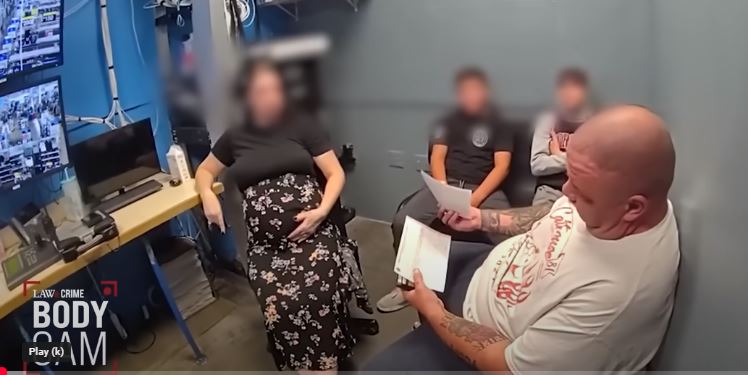October 10, 2023
LANSING – Senate Bills 395-396 bring needed changes to Michigan’s time-intensive educator evaluation system and will allow teachers and school administrators to spend more time focused on students, according to the Michigan Department of Education.
“This legislature has accomplished a great deal this session in terms of much-needed investments in education funding and in addressing flaws in education policy,” saidState Superintendent Dr. Michael Rice. “Improving educator evaluation laws will be the next major legislative effort to improve public education for students.”
This effort to improve educator evaluation laws is critical for at least two reasons, both associated with time—for children to learn and teachers to teach, Dr. Rice said.
“First, it is vitally important because we have spent so much time evaluating staff, not to thebenefitof children but rather at theexpenseof time that could and should have been spent educating children,” Dr. Rice said. “Bottom line–we need to pour more time into teaching children.”
The second reason according to Dr. Rice is that the state legislature will likely not revisit this topic for several years. “What we do on this topic now will affect our children for a decade,” he said.
The bills before the Senate Education Committee would provide the opportunity for effective teachers to be formally evaluated every three years instead of annually or biennially, but would permit more frequent evaluation if necessary; and provide school administrators time to have a more significant focus on the needs of inexperienced and otherwise struggling staff who require more assistance to become effective teachers of children.
Have you been charged with a crime?
Have your rights been violated?
Have your driving priviledges been revoked?
Has your professional license been suspended?
Call our office to see if we can help
Komorn Law 248-357-2550
Dr. Rice said that the committee is making strong progress in improving educator evaluations in Michigan, and that he appreciated the continued work being done in having a measure of student growth or student learning objective included in the educator evaluation process.
“Although the state summative assessments should never have been part of educator evaluations and should be removed from the evaluation process, we believe strongly that some portion of educator evaluations should be associated with a student growth or student learning objective measure, locally determined between teacher and administrator, based on the teachers’ subjects, grade levels, and individual goals,” Dr. Rice said.
“This is a matter of student growth as well as the professional growth of educators,” he said. “We have to get it right.”
The Senate Education Committee heard testimony on Senate Bills 395-396 today and is expected to take action on the legislation soon.
Related News
- Michigan makes post-COVID education crisis worse
- Disrupted Learning During the Pandemic Causes Dip in State Assessment Scores
- National assessment shows Michigan students stumbled in reading and math
- Gaps in Michigan student achievement remain wider than pre-pandemic norm, report finds
- Michigan students lost ground during COVID. This is what an education nonprofit says will close the gap.
- Scholarship and Grant Programs
More Posts

When Can Police Take Your Dash Cam?
You work hard. Now get ready to work harder to prepare to give more.In Michigan, police can take your dashcam footage in specific situations, primarily when they believe it could serve as evidence in a criminal investigation. Michigan law permits officers to seize...

People who are going to need a Lawyer – November 12, 2024
People who are going to need a LawyerMan so drunk field sobriety tests were ‘too dangerous’ sentenced to life in prison for repeated DWI convictions‘Several terabytes’: Diddy prosecutors shed light on ‘voluminous’ discovery, including iCloud accounts and dozens of...

Cambridge Analytica data breach comes before court
Oral arguments in Facebook v. Amalgamated Bank will beginThe justices are set to review securities law as they hear arguments in a significant case linked to the 2015 data breach involving Cambridge Analytica and Facebook. The tech giant’s effort to fend off federal...

Search and Seizure – Consent or Plain view
The Fourth Amendment was established to protect individuals from unreasonable searches and seizures, yet there are exceptions.In Michigan, understanding the concepts of search and seizure, particularly regarding consent and plain view, is crucial for both law...

A drunk driving investigation, a car wreck and a blood draw
A Case Summary: People v. Blake Anthony-William BartonOn October 11, 2024, the Michigan Court of Appeals issued a decision in the case People of the State of Michigan v. Blake Anthony-William Barton. The case involved a drunk driving investigation following a car...

Police say they can tell if you are too high to drive
Police say they can tell if you are too high to drive. Critics call it ‘utter nonsense’Haley Butler-Moore sped up to pass a semi on the highway when she suddenly saw the police lights. She’d left Albuquerque hours earlier, heading to a Halloween party in Denver. Tired...

Cannabis – The Rise and Fall and Trail of Survivors Pile Up
Thieves make off with 1,000 pounds of premium flower in cannabis from a corporate grower in Michigan. Then, the GM sells off 650+ pounds to pay employees.The recent theft of over 1,000 pounds of marijuana from 305 Farms, a corporate cannabis grower in West Michigan,...

If you have an LLC you must comply or face fines and possible prison
You work hard. Now get ready to work harder to prepare to give more.If you own or are a member of an LLC.You have a deadline of January 1, 2025Call us we can take care of it for you. 248-357-2550The new Beneficial Ownership Reporting requirements for LLCs and other...

Compounding Charges Laws in Michigan
Understanding Compounding Charges Laws in Michigan Compounding charges refer to the illegal act of accepting or agreeing to accept a benefit in exchange for not prosecuting a crime. In Michigan, this is considered a serious offense, and the law specifically prohibits...

Harris unveils new proposals targeting black men with cannabis legalization
"Harris unveils new proposals targeting Black men as she looks to shore up Democratic coalition" CNNAmid the ongoing national issues, Vice President Kamala Harris introduced new initiatives on Monday aimed at addressing the needs of Black men as she works to bolster...











